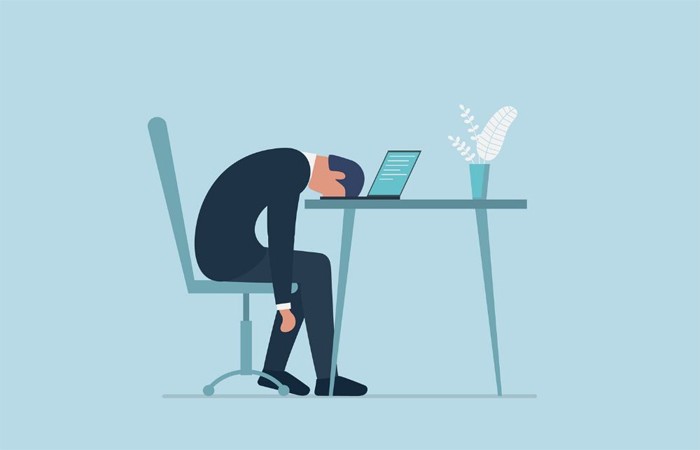Anxiety is a natural response to danger and If you were in a situation where your life was threatened say, you were being chased by a grizzly bear you’d find some of the symptoms of anxiety, to be very useful. The increased heart rate would get the blood to flow around your body, that would increase the oxygen in your muscles meaning that you could either fight or run away.
Anxiety sufferers may feel restless because their mind believes they are in danger, nausea is often a symptom of anxiety. If you were digesting a meal all the blood would be in your belly and using up energy that your body could use to make your escape this is why many people who suffer with anxiety can feel nauseous.
You may begin sweating excessively because your body is getting ready for the activity it is expecting. Your breathing rate would increase to try and take in more oxygen.
Long Term Effects Of Anxiety
A reduced immune system – If you were in immediate danger the last thing you would want to worry about would be colds, flu or viruses so that energy would be diverted from your immune system so that you can make your escape.
Headaches/Migraines – people who suffer with anxiety tend to hold a lot of tension in their neck, which causes headaches and migraines.
A reduced social circle – Anxiety sufferers can suffer with a lack of friends and dysfunctional relationships.
You Are Not Alone
In 2014, 19.7% of people in the UK aged 16 and over showed symptoms of anxiety or depression, mixed anxiety and depression is the most common form of mental disorder in the UK. It’s estimated around 9% of people meet the criteria for diagnosis.
Techniques To Reduce Anxiety
Anxiety is a natural response to danger so it can never be completely eliminated but it can be reduced. One way you can reduce anxiety is by chewing gum, chewing gum has actually been scientifically proven to reduce anxiety, reduce stress and improve focus. If you watch football you’ve probably noticed that a lot of football chew gum for that very reason, it helps them stay calm and be focused.
The theory is that chewing works because if you were in immediate danger, you wouldn’t have time to stop and have a bite to eat so when you chew you’re telling your mind it’s safe because you’re eating.
If you were in immediate danger you wouldn’t be breathing out for longer than you’re breathing in, usually when people are in immediate danger exerting a lot of energy. They have very short breaths and they’re breathing into the chest. When we breathe out for longer than we’re breathing in, we’re telling our mind that there’s no immediate danger because if there was we would be taking short breaths and we wouldn’t be breathing all the way down into our stomach.
One breathing technique we can use is called 7/11 breathing, 7/11 involves breathing in for the count of seven and then breathing out for the count of eleven. When you do that five or six times you should notice that your relaxation levels increase.
Box breathing involves breathing in, for the count of five. Holding the breath for the count of five. Breathing out for the count of five. And then, breathing, holding the space between breaths, for the count of five so it takes the form of a box.
For me hypnosis has been a very effective solution to reduce my anxiety for the long-term.
There are many benefits that hypnotherapy can offer anxiety sufferers, one reason hypnosis helps with anxiety is because it helps us connect to the present moment. Lao Tzu said, “if you’re depressed, you’re living in the past, you’re anxious, you’re living in the future, if you’re at peace you’re living in the present” Hypnosis is not sleep is focused state of attention and it helps us connect to the present moment.

